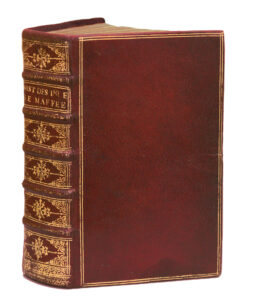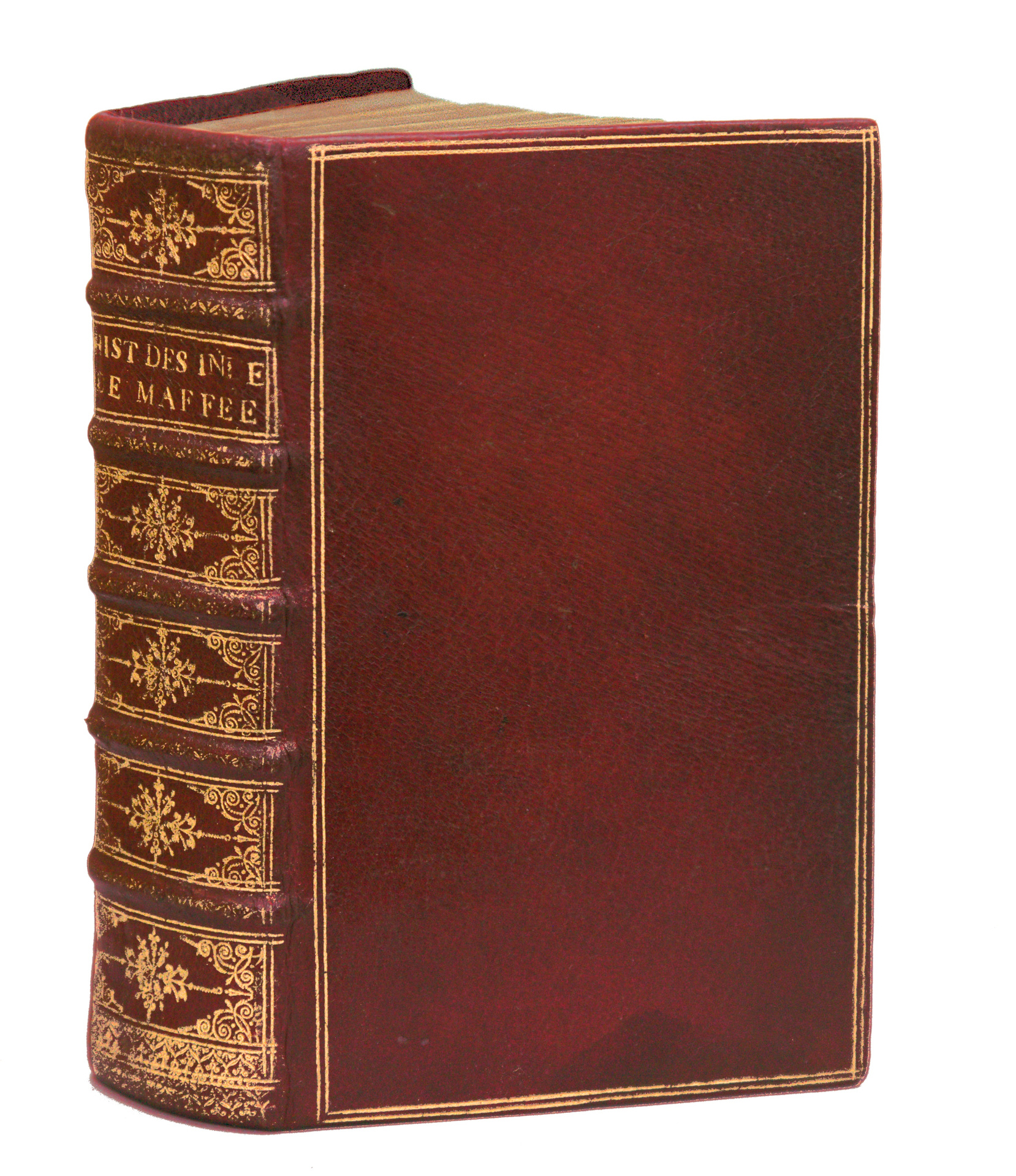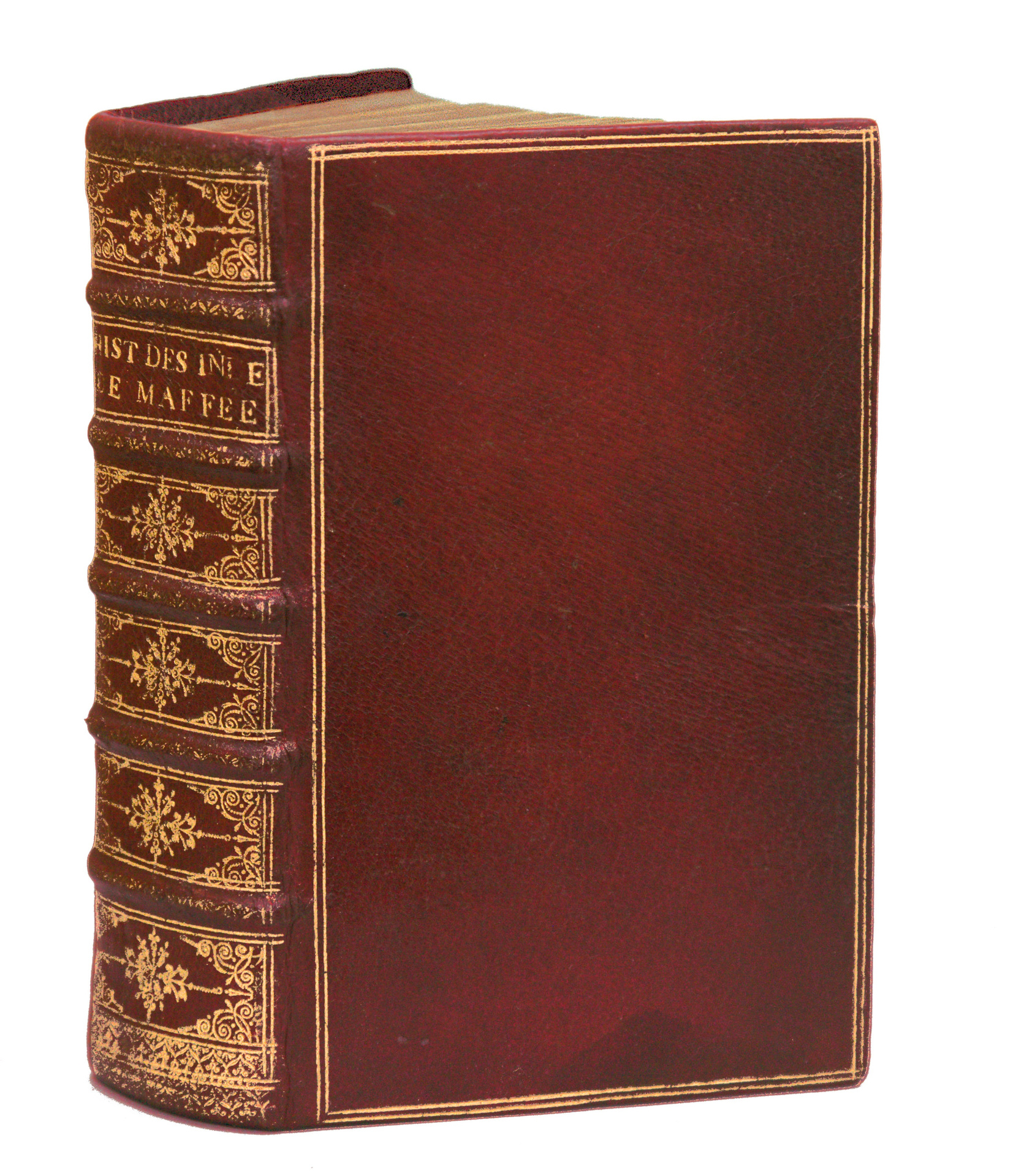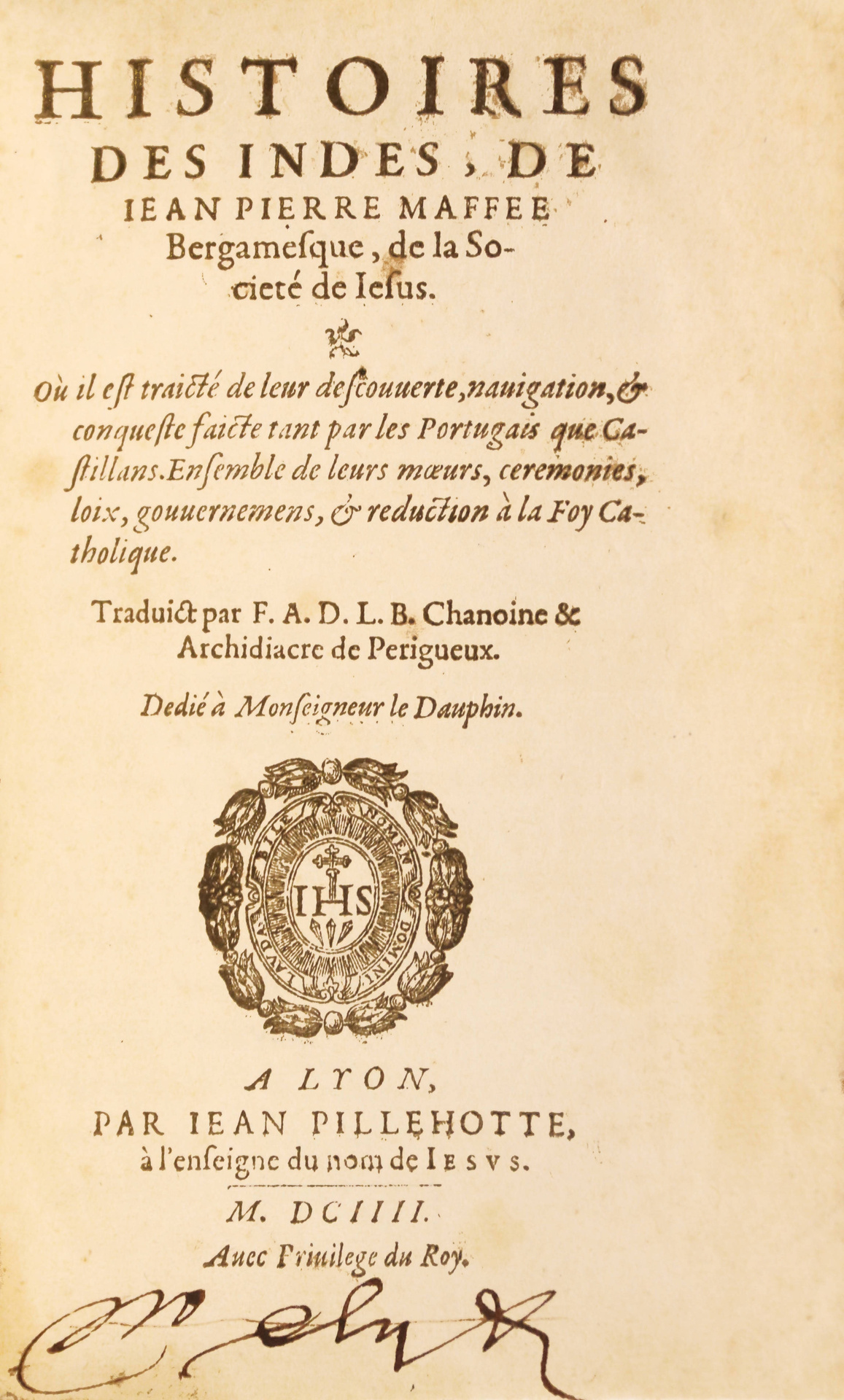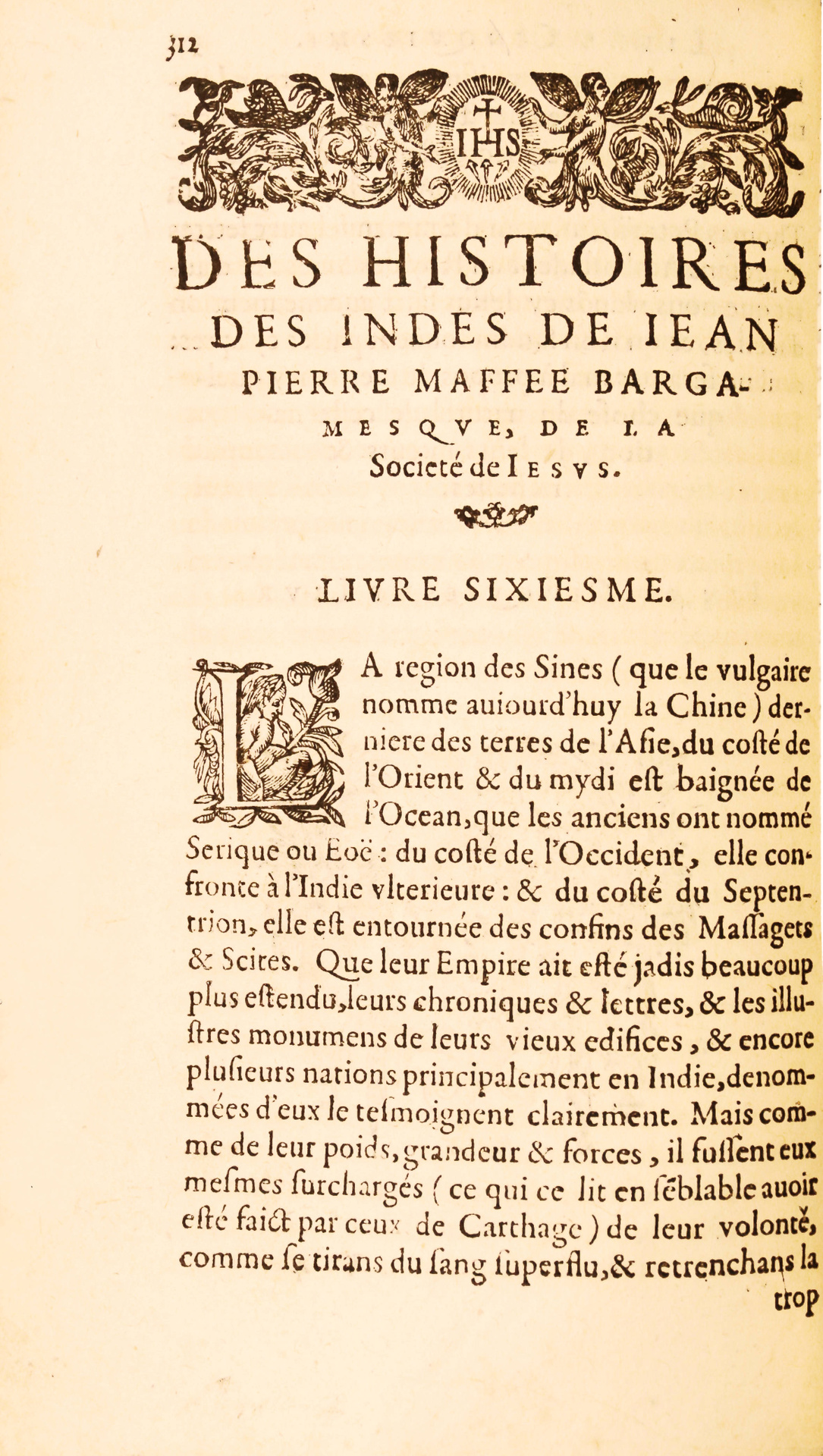Lyon, Jean Pillehotte, 1604.
8vo of (2) ll., 953 pp., (47) pp. of table. Few foxing, small wormtrack starting p. 915. Full red morocco, gilt fillets around the covers, ribbed and decorated spine. Elegant binding from the 17th century.
171 x 116 mm.
First edition of the French translation of the most famous work by the Hesuit Jean-Pierre Maffei (1535-1603) “Historiarum Indicarum”.
De Backer & Sommervogel, V, col. 299 ; Sabin 43782.
It is one of the earliest missions of Jesuits to the Far East, including the letters and the life of Ignace de Loyola.
The great work of the Italian Jesuit Giovanni Pietro Maffei (1538-1603) about the general history of the Indies, relates the history of the Portuguese Jesuit missions to Brazil, the Indies, Japan and China. It is the first French translation of the work, given by the Perigord canon François Arnault de la Borie.
“Based on primary materials and written in elegant Latin, Maffei’s Historiarum Indicarum received an enthusiastic reception all over Europe. The way had been prepared for its appearance by the enthusiasm aroused by the Japanese embassy. Like Mendoza’s book on China, it hit the market when curiosity about the Far East was at its height…..Unlike many of the letters from the East, Maffei’s work is couched in careful language and rhetorical flourishes that are notably few. Even Valignano, who had warned that Maffei’s work should not be published until it had been seen in the East, appeared to be happy with his discussion of Japan. In 1603, the Jesuit Visitor [i.e. Va1ignano] wrote from Macao: “Of all those who have so far written about Japan, none has done it with greater precision or in better order than Father G. P. Maffei.”
“Most of Maffei’s work is concerned with the Portuguese conquests and the Jesuit stations in India, the East Indies, and the region of the Arabian Sea to about 1557. The first five books appear to follow rather closely the model of Barros. Book VI, dealing with China, like book XII, which is mainly concerned with Japan, is heavily indebted to Valignano’s account of those countries. The appendixes of letters … were almost all written either about or from Japan in the years between 1549 and 1574. While reproducing here many of the same letters which he had earlier appended to his translation of Da Costa’s book [i.e. Acosta’s Rerum a Societate Jesu in Oriente gestarum], Maffei appears to have exercised greater care in the selections which he made for this second compendium. Furthermore, this second effort did not suffer from the excisions and revision of the Roman censors. In fact, it is worth observing that it originally appeared in Florence, and that none of the subsequent editions was produced in Rome” (Latch I pp. 325-6)” (Bemard Quaritch Ltd., catalogue 1226: “The Society of Jesus, 1548-1773,” 134, re. Cologne, 1593 ed.).
In 1570, Maffei, published the Latin translation of the Histoire des Indes orientales by Father Acosta; and the cardinal Henri of Portugal, seduced by his style, asked him to come to Lisbon in order to work on the Histoire générale des Indes based on the documents preserved in the public archives.
The Jesuit accepted the invitation of the prince, who welcomed him with distinction and gave him all the help he needed for this work. After the death of Henry, in 1581, Maffei came back to Italy and lived several times in Rome and Sienna, always busy reviewing and improving his works. Pope Clement VIII granted him with an accommodation inside the Vatican and invited him to continue in Latin the Annals of Grégoire XIII that he had composed in Italian. All the works by Maffei are written with great simplicity and with remarkable natural.
Very beautiful wide-margined copy preserved in an elegant binding in 17th century decorated morocco.
